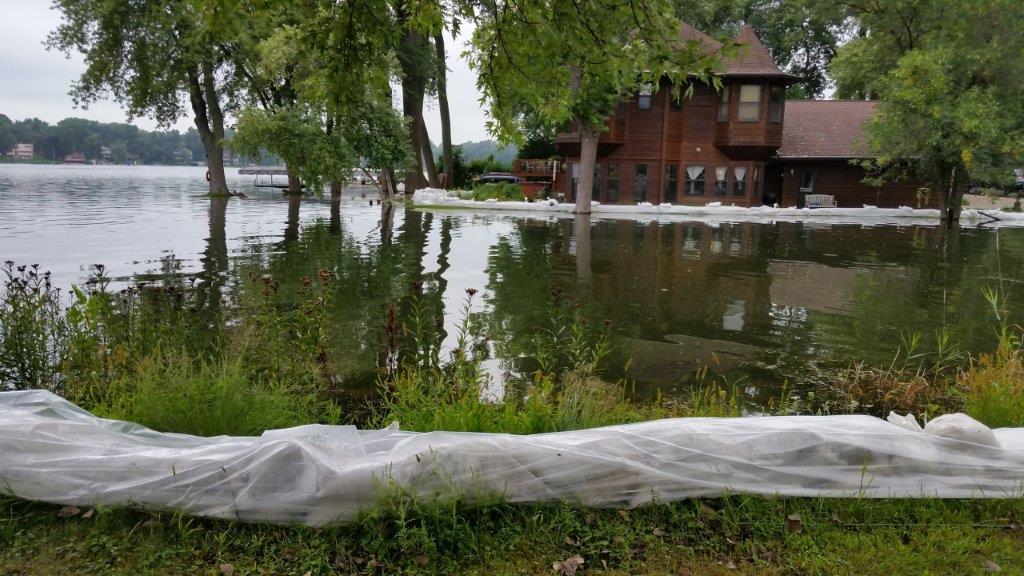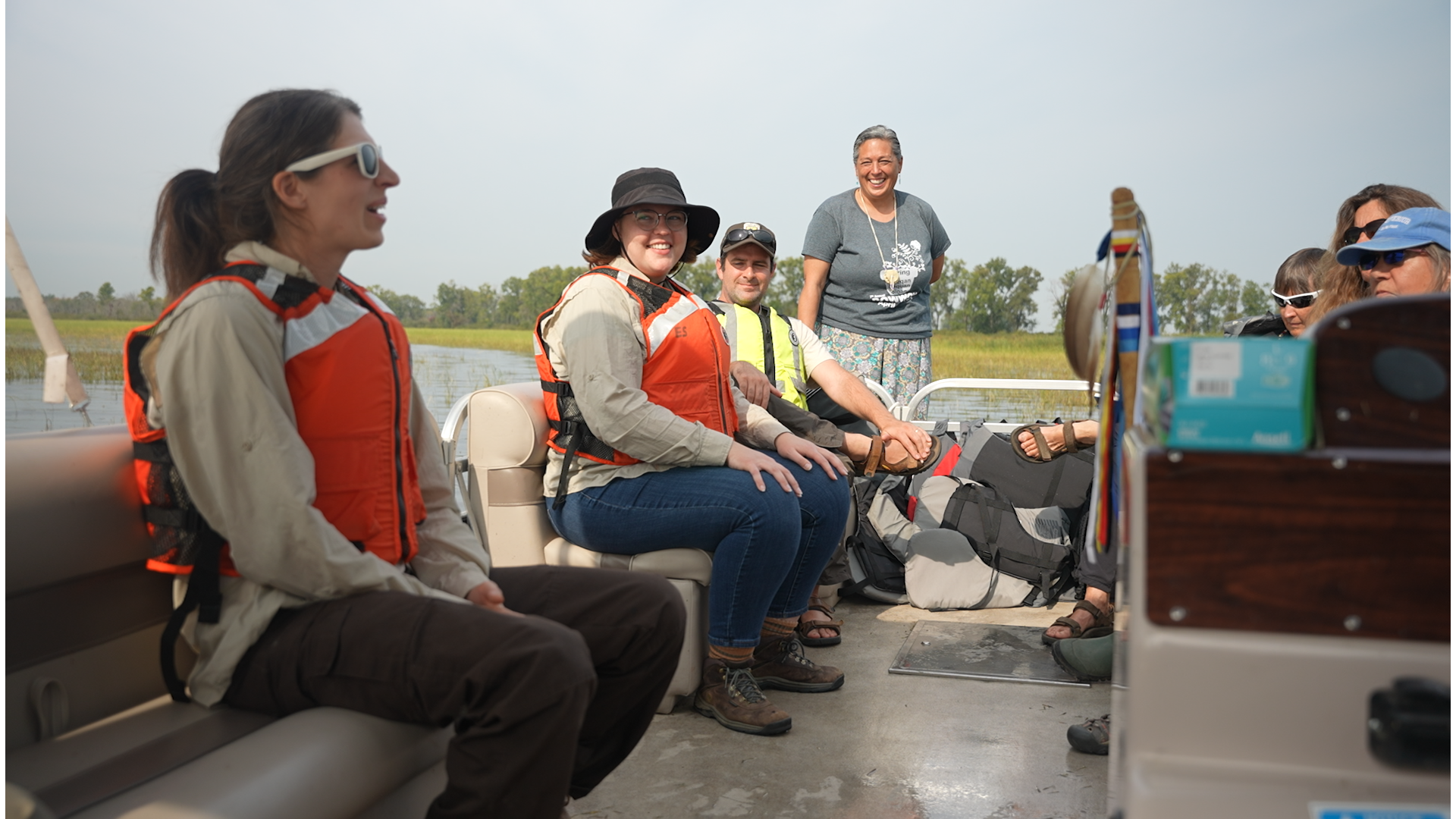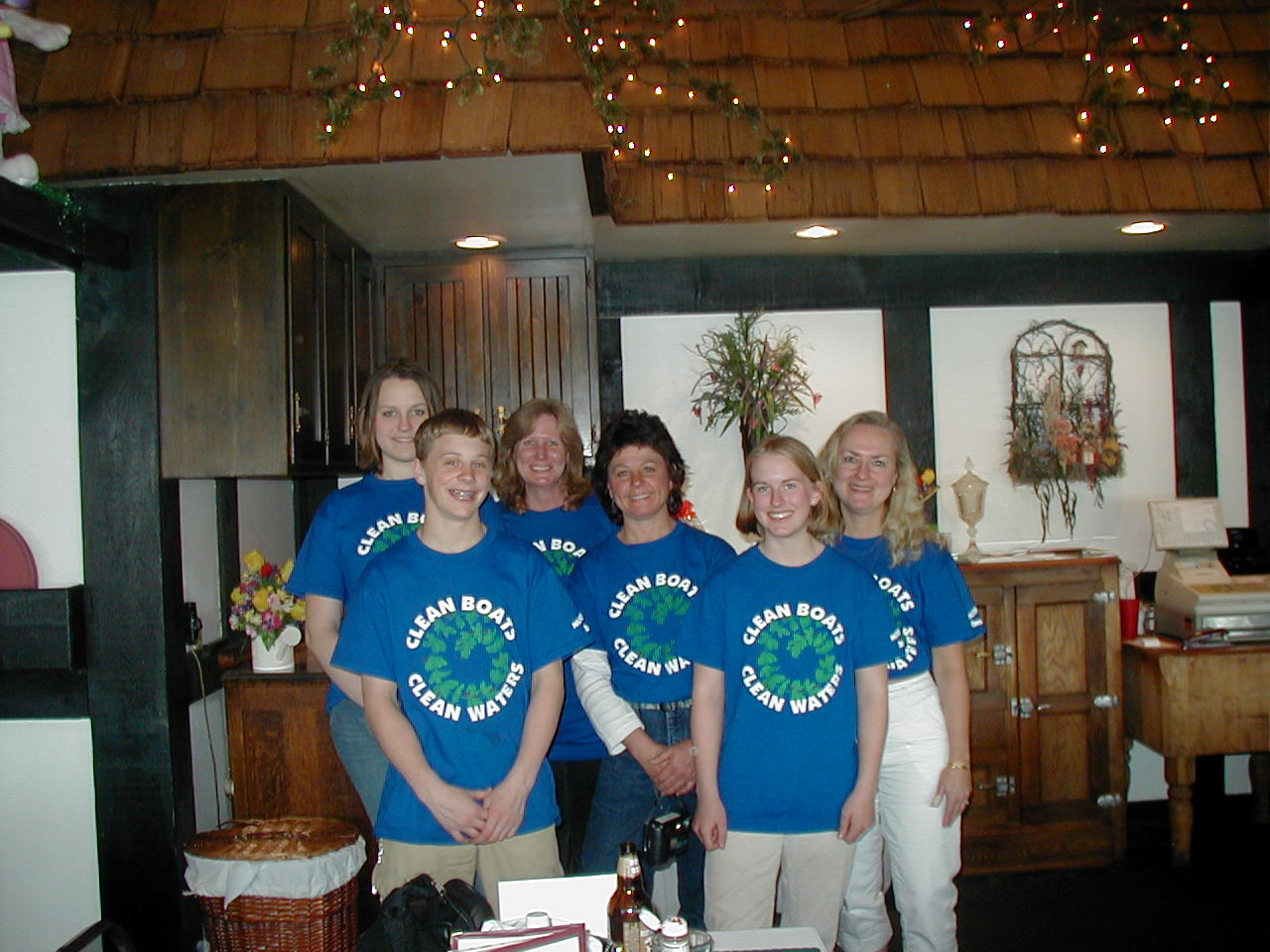
Flooding on Lake Monona in Wisconsin. Image credit: Wisconsin Emergency Management
The annual amount of rain and snowfall is rising in Wisconsin. Over the past 70 years, the intensity of storms has increased, bringing more rain in a shorter amount of time, which can lead to flooding. To help communities cope and prepare, Wisconsin Sea Grant and the Wisconsin Department of Health Services (DHS) have developed a Flood Resilience Scorecard.

Emma Holtan. Submitted photo
Emma Holtan, flood resilience intern with the DHS Climate and Health Program, described the new proactive tool. “Basically, it’s a comprehensive questionnaire that a local official can move through with a team of assembled staff, experts and community members. Together, they move through three different parts of the scorecard that address different aspects of their community and the way they relate to flood resilience.”
The three modules address environmental features of flood vulnerability, sustainable community policies and plans, and building social resilience. Although the scorecard questionnaire is in-depth, the answers are multiple choice and resources are provided in the document for reference.
Holtan was hired this past May with the goal of working with the community of Washburn, Wisconsin, to test-run the scorecard by completing it with Washburn staff. The necessity of social distancing changed those plans.
Margaret Thelen, DHS climate and health program manager, said, “We had Emma complete it on her own with very little familiarity with the municipality. She completed it in about eight hours. That’s with looking up municipal code, reading through social media, reading through websites. If you’ve ever looked through municipal code – ooof! So, bless her for doing that. If a local planner or emergency manager or a local public health official were to complete it, they could do it in less time if they knew where to look and who to ask for the scorecard questions.”

Margaret Thelen. Submitted photo.
Thelen said the idea for the scorecard came from Sea Grant’s Coastal Resilience Self-Assessment. This project is designed for communities in southeastern Wisconsin that are heavily impacted by coastal storms, fluctuating Lake Michigan water levels and erosion.
“Sea Grant got brought in because we were working on very similar products,” Thelen said. “We could share best practices and share what works. They’ve been an invaluable partner on this project.”
Even if a community’s score is low after going through the process, Holtan said that’s all right. “If your score is lower or doesn’t meet a certain favorable threshold, then there’s a list of recommendations that you or your community may choose to implement if you have the necessary funding and resources. So, it’s really a tool that helps prioritize actions that will make your community more flood resilient and does so in a more holistic and comprehensive way, which I think is really cool.”
Holtan and Thelen said plans are in the works to make the scoring process more interactive. They also plan to develop a listing of funding sources for communities to make changes, a facilitation guide and a database of scorecard outcomes.
Holtan said the effort to complete the scorecard is worth it. “I feel like in Wisconsin we’re relatively safe from a lot of climate disasters that we’re seeing, but flooding is creeping up on us pretty fast and could be extremely detrimental. The opportunity to use this tool in the planning process of preparing for the climate changing is amazing. You get an in-depth look at your community in a way that most other tools don’t ask you to do. It’s to a community’s benefit to use this tool and to work together to prepare for a future that is safer for everybody.”
The scorecard was recently presented by Holtan and Natalie Chin, Wisconsin Sea Grant climate and tourism outreach specialist, at a Coastal Hazards of (Lake) Superior meeting. A PDF of the scorecard and individual models can be downloaded from the website.
If your community is interested in partnering with Sea Grant to go through the scorecard or has already completed it, let Chin know by emailing: nchin5@aqua.wisc.edu.





